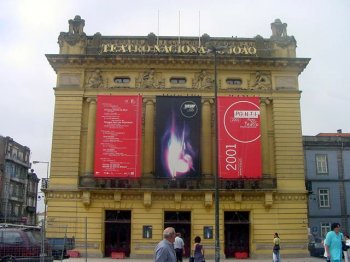Explore the best places
Results for Palácio da Pena in Portugal
Quinta da Moscadinha
- hotels
Caminho Municipal dos Caboucos, 19
9135-378, Camacha
Este espaço centenário, situado na pitoresca vila da Camacha, recebeu o seu nome a partir do licor de ervas MOSCADINHA, uma receita familiar com origem no lado norte da ilha. Nesta Quinta, toda a paisagem idílica envolvente convida ao relaxamento e a uma relação próxima com a Natureza.
Teleférico da Penha
- heritage
Lugar das Hortas
4810-025, Guimarães
The journey on the Teleférico da Penha begins at the aerial tramway's terminal. It offers unique views of the city until it reaches its peak, on the Alto da Penha. There, apart from the belvederes with excellent views, there are also restaurants, bars, a hotel, a camping park, a mini-golf course, a maintenance circuit, picnic areas and, for the most adventurous, caves just waiting to be discovered.
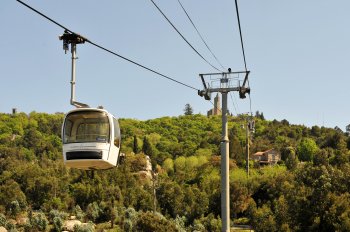
Teleférico de Gaia
- heritage
Calçada da Serra, 143
4430-236, Vila Nova de Gaia
The Gaia Cable Car is, at the same time, a means of transport and a tourist tour. It connects Praça da Super Bock, in Cais de Gaia, with Jardim do Morro, on Avenida da República, next to Jardim do Morro Station of the Porto Metro. There are 12 cabins with capacity for eight people each, covering 562 meters during the five-minute trip.
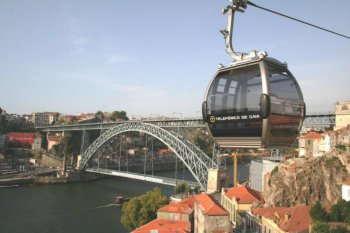
Trilho Pedestre Povoação - Pico da Vara (PR23)
- country
Rua Gonçalo Velho
9650-423, Povoação
Route that begins in the village and ends at Pico da Vara, the highest point on the island, with about 1100 meters of altitude. After reaching the peak, can choose to descend to the Algarve, the Lomba da Fazenda or go down the same path. Will pass by a waterfall, in the Ribeira de Purge, by Lomba de Nossa Senhora dos Remédios, some pastures and the mountain Simplicius.
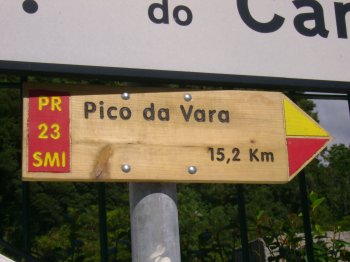
Trilho Pedestre Vista do Rei - Sete Cidades (PR3)
- country
ER 9-1
9555, Sete Cidades
This route begins at the Miradouro da Vista do Rei. Begins by Strand West Ridge of Caldeira das Sete Cidades. In this part of the route can be seen: on the right side of the boiler dry and the lagoons of the seven cities and on the left the West coast of the island of São Miguel. The route traverses an area classified as Protected Landscape and ends in the village of Sete Cidades.
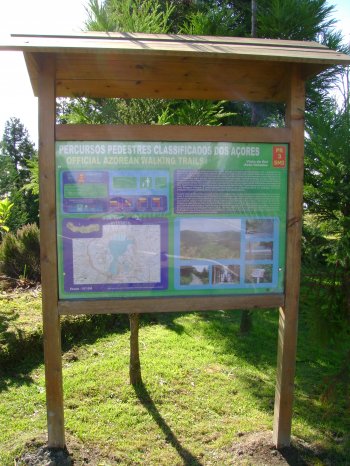
Fataça na Telha
- leisure
Santarém
2000, Santarém
A gastronomia do Ribatejo apresenta particularidades distintas das restantes regiões, uma vez que os segredos da gastronomia passam de geração em geração. O sável, peixe abundante no Tejo, deu origem a este prato e a outros pratos regionais como a açorda de sável ou a caldeirada à fragateiro.
Casas do Soito
- hotels
Rua Eira do Costa, 10
6270-651, Lapa dos Dinheiros
Em pleno Parque Natural da Serra da Estrela, as Casas do Soito situam-se no alto de uma típica aldeia de montanha, a Lapa dos Dinheiros. Os seus apartamentos com 2 ou 3 quartos, rústicos e acolhedores, tem acesso a uma piscina exterior com vistas panorâmicas soberbas.
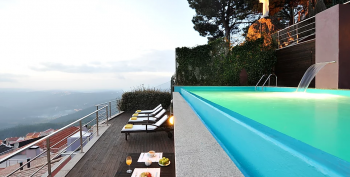
Miradouro de Penacova / Mirante Emídio da Silva
- country
- leisure
Avenida Bissaya Barreto
3360-191, Penacova
Also known as Mirante Emydgio da Silva (or Emídio da Silva), who was responsible for the idea of building this place, it was designed by the Italian Nicolau Bigaglia, having been built in the 20th century. It was opened in 1908 and the stone columns were brought from the Lorvão Monastery. This viewpoint provides a beautiful view over the Buçaco mountains, the Mondego River and the village of Penacova.
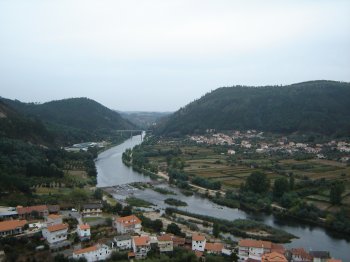
Convento de Santo António
- heritage
Praça Coronel António Maria Baptista
2530-125, Lourinhã
Classification as National Monument encompasses the former convent of Santo António da Lourinhã, including the Church of Saint Anthony, also known as Igreja do Convento de Santo António da Lourinhã and Church of our Lady of the Annunciation. Monument of Mannerist style, Baroque, Rococo and neoclassic. Mostly, the decoration shows Baroque inspiration, excepting the altarpieces that are neoclassicals.
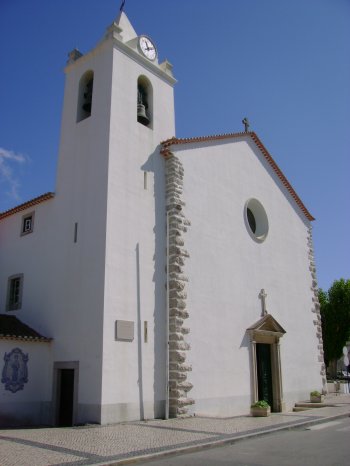
Edifício do Teatro Nacional de São João
- heritage
Praça da Batalha
4000-102, Porto
The São João Theatre was open in 1798, at the present Praça da Batalha. This theatre, which became the binding meeting point to the romantic generation, was destroyed by a fire in April, 1908. Nowadays, the Companhia Nacional do Teatro São João, totally rebuilt by Marques da Silva, is one of the main buildings in the city and stage for the most important cultural shows of the city.
